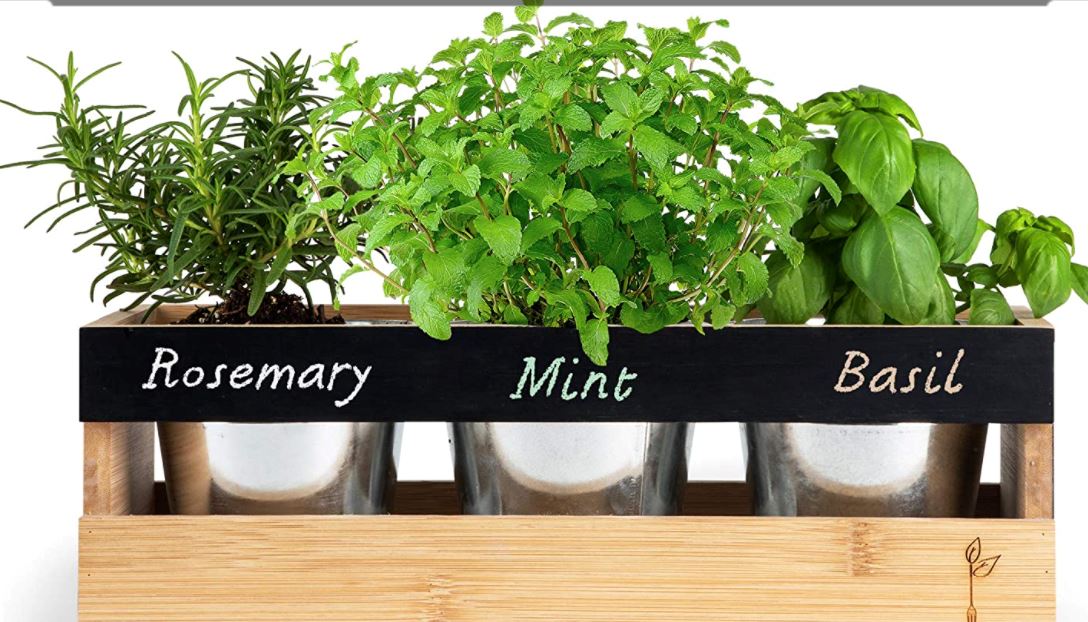Growing Your Winter Herb Garden
Now that winter weather has descended on much of the country, there are still loads of things a homeowner can grow to keep the freshest of ingredients available for winter culinary adventures.
Basil, chives, mints and parsley are just a few herbs that do very nicely in pots with bright indirect light. It might surprise you to know you don’t need direct sunlight for growing most herbs; the indirect light most of us get will work fine.

East-, south- and west-facing windows should all give your herbs enough light, especially if you set up a small table or use a counter that keeps plants about a foot away from window glass.
Start with a few basics, such as oregano, thyme, parsley, basil and rosemary. Then add a few others that your family particularly enjoys in their favorite meals. Cilantro? Dill? Chives?
Check your garden center for high-quality seeds or for healthy and vigorous-looking starter plants. It’s also worth checking to see if there’s a selection of starter plants in your grocery store’s produce section.
If your herb garden is in your kitchen, the plants should get some additional humidity from your use of the sink or dishwasher. If not, lightly mist them with a water spray bottle.
Top Benefits of Installing a Tankless Water Heater
As is the case with most household appliances, modern technological advancements can result in massive improvements. Here are the top benefits of installing a tankless water heater in your home:
Save Money on Your Energy Bill
With a conventional water heater, hot water is stored inside the tank. In theory, this keeps a ready supply of hot water on hand for immediate use, but the fact is that the hot water just sits around when not being used. This is not only a complete waste of energy; it also costs you extra money at the end of the month on your energy bill.
Tankless Is Better Than Conventional
A tankless water heater does not store hot water for later use. Instead, a tankless water heater only produces as much hot water as a person needs. In other words, when the hot water faucet is turned on, the tankless unit provides the exact amount of hot water dispensed until the faucet is turned off. With the installation of a tankless unit in your home, you never need to worry about running out of hot water again during a shower.
The Single Biggest Flaw of Conventional Tank Water Heaters
One of the biggest problems with conventional tank water heaters is leakage. No matter how fancy of an electric water heater you buy, the unit will start leaking as time takes its toll. After all, these are constantly filled with water day in and day out for a period of years. A tankless water heater, on the other hand, doesn’t store water, and, therefore, will never leave you a big mess to clean up—because there’s nothing to leak!

 Facebook
Facebook
 X
X
 Pinterest
Pinterest
 Copy Link
Copy Link



